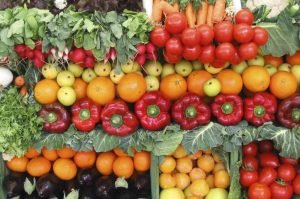Tunisia exported nearly 40,000 tonnes of organic agricultural products in the first half of 2025, generating close to 489 million dinars in revenue, according to data released by the National Observatory of Agriculture (ONAGRI). Organic olive oil dominated the sector, accounting for a substantial 86.8% of total organic exports. A total of 45,000 tonnes of organic olive oil were shipped abroad, valued at 620.8 million dinars. This represents 20% of Tunisia’s total olive oil exports by volume and 20.2% by value. Italy emerged as the primary destination, purchasing over half…
Category: business
Tunisia’s Tourism Diversifies Beyond the Beach with Rise of Guesthouses and Rural Lodgings
Long dominated by coastal resorts and all-inclusive packages, Tunisia’s tourism industry is undergoing a quiet but promising transformation. A growing number of travelers are turning away from mass tourism and discovering the charm of guesthouses, rural lodges, motels, and even eco-campsites—an alternative model rooted in authenticity, personalized hospitality, and local heritage. This shift is being supported by new regulations announced earlier this year. In April, Minister of Tourism and Handicrafts, Sofiene Tekaya, revealed the implementation of four official regulatory frameworks aimed at replacing the current licensing system. The goal: to…
Tourism Booms in Tunisia, but Competitive Pressures Persist
Tunisia’s tourism sector is showing strong signs of recovery in the first half of 2025, with a marked rise in visitor numbers, overnight stays, and foreign currency earnings. Yet, despite the sector’s encouraging momentum, concerns remain over its long-term competitiveness amid intensifying regional rivalry. According to recent data from the Ministry of Tourism, international arrivals increased by 18% compared to the same period in 2024. Preliminary figures also indicate a nearly 25% surge in tourism revenue, bolstered by improved air connectivity, the rebound of European source markets, and a more…
Tunisia’s Food Trade Surplus Shrinks Sharply in First Half of 2025
Tunisia recorded a significant drop in its food trade surplus during the first half of 2025, amounting to 824.1 million dinars (approximately USD 274.7 million), compared to 1.83 billion dinars during the same period in 2024, according to new data from the National Observatory for Agriculture (ONAGRI). The decline reflects a sharp contraction in food exports, particularly olive oil, dates, and seafood—three of Tunisia’s key agricultural products. Olive oil exports, traditionally a major foreign currency earner, fell by 31.1%, while date exports dropped by 13.3%, and seafood by 21.6%. On…
Tunisia Taps Artificial Intelligence to Shape 2026–2030 Development Plan
Tunisia has turned to artificial intelligence (AI) to chart its economic and social path for the next five years, marking a landmark shift in public policy planning. Mohamed El Kou, President of the Development Planning Commission, announced Wednesday that AI tools played a central role in drafting the national development plan for 2026–2030. The plan, unveiled by El Kou during a press briefing, outlines Tunisia’s core priorities: digital transformation, legislative reform, support for small and medium-sized enterprises (SMEs), regional equity, healthcare modernization, and the expansion of renewable energy. According to…
Tunisia eyes increase of forest cover from 12% to 16% of its total land area
Credit goes to TAP Tunisia eyes to increase its forest cover from 12% to 16% of the country’s total land area in the coming years, Director of Forest Conservation at the Ministry of Agriculture, Water Resources, and Fisheries Sahbi Ben Dhiaf announced. In an interview at TAP’s TV studio, the official pointed out the resilience of Tunisian forests in the face of wildfires, noting their capacity for natural regeneration following fire damage. “Mediterranean forests,” he added, “are naturally capable of regenerating, provided that fires do not recur in the same areas.” In such…
Tunisia’s trade deficit widens to $3.4 billion in first half of 2025
Tunisia’s trade deficit widened by 24% in the first half of 2025, reaching $3.4 billion, official data showed on Friday, underscoring persistent economic pressures on the country. The National Institute of Statistics (INS) said that the increase was driven by a rise in imports which reached $14.36 billion, particularly of energy that rose by 13%, while exports remained stagnant. TunisianMonitorOnline (INS)
AMCHAM Tunisia: Tunisia, US negotiate reduction of customs duties to 10%.
President of the American Chamber of Commerce in Tunisia (AMCHAM Tunisia), Marouane Ben Jemaa, said that Trump’s correspondence received by Tunisia had also been sent to 12 other countries, including Japan and South Korea. Speaking to Expresso on Tuesday, July 8, 2025, he pointed out that the United States had granted Tunisia a deadline running from July 8 to August 1, during which negotiations between the two parties are continuing, with the aim of reaching an agreement around a rate of 10%, as has been the case for some countries…
Tunisia’s Travel Resurgence: 4.3 million tourists now and still rising
According to the Tunisian National Tourism Office, Tunisia welcomed 4.3 million tourists in the first half of 2025, marking an 11% increase on the same period last year. With tourism revenues surpassing 3 billion dinars (around US$1 billion), it’s evident that the country’s beaches and ancient ruins are once again generating significant revenue. ‘Tourism is now one of the sectors contributing most to the inflow of foreign currency into the national economy,’ said Mohamed Mehdi Haloui, head of the National Tourism Office, speaking to Mosaique FM. He described the 2025…
Inflation rate in Tunisia remains steady at 5.4% in June 2025
According to a bulletin issued on Saturday by the National Institute of Statistics (INS), Tunisia’s inflation rate remained stable at 5.4% in June 2025, focusing on the Consumer Price Index (CPI). The INS attributes this stability to an accelerated increase in prices in the ‘restaurants, cafés and hotels’ group (11% in June 2025 compared with 10.8% in May 2025) and a deceleration in the pace of food price rises (6.4% in June 2025 compared with 6.7% in May 2025). Core inflation, excluding food and energy, remained stable at 5.5%. Prices…










